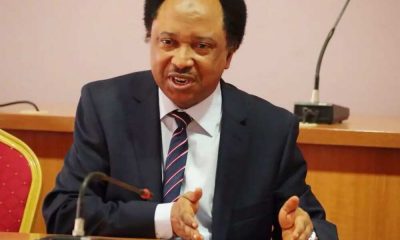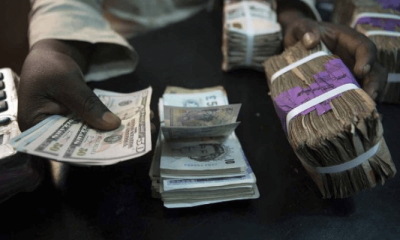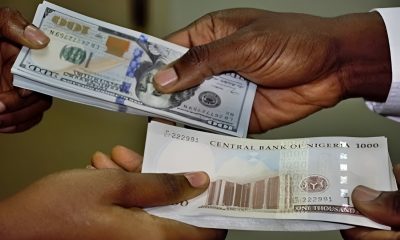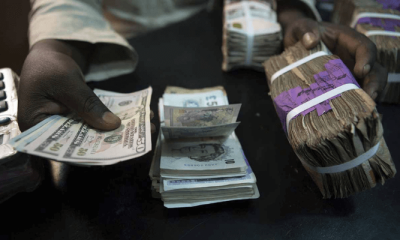The Central Bank of Nigeria (CBN) recently announced significant reforms in the foreign exchange market, signaling a stride towards a market-driven exchange rate mechanism, potentially paving the way for a free float of the Naira.
The Naira strengthened against the dollar in the official market last weekend to close at N1,469.97/$1 as the ongoing demand pressure continued to erode the value of Nigeria’s currency.
Similarly, the naira appreciated marginally at the parallel forex market where forex is sold unofficially, the exchange rate quoted at N1,485/$1, an increase of 1.01 per cent against N1,500 it closed the previous day
The CBN’s recent circular outlines pivotal changes, including the discontinuation of a cap on the spread in interbank foreign exchange transactions and the lifting of restrictions on the sale of interbank proceeds.
Under the new guidelines, forex transactions will operate on a “Willing Buyer and Willing Seller” basis, ensuring more flexibility in the exchange rates determined by market forces.
READ ALSO: FG promises to stabilizes forex market
This directive aims to foster a more transparent, competitive, and efficient market, where exchange rates are determined by the market participants themselves, without fixed rates imposed by the regulator.
In addition to promoting market-based pricing, the CBN’s circular stresses the importance of maintaining high ethical standards and transparency in foreign exchange dealings.
While the circular does not explicitly announce a full transition to a free float, the reforms indicate a significant shift in policy direction.
Analysts view this development as a positive step towards aligning Nigeria’s foreign exchange market with global best practices.
The CEO of SD & D Capital Management, Mr Idakolo Gbolade said the recent measures by the CBN were aimed at devaluing the Naira against foreign currencies.
Gbolade, however, urged that the CBN must not be reactionary but critically examine their policies so far with a view of correcting areas that need adjustment.
“The continuous devaluation of the Naira is a result of demand outweighing supply due to scarcity. The CBN should evolve other ingenious measures to reduce the demand pressure.”
READ ALSO: BDCs must be involved in solving forex crisis- Gwadebe
Providing more context into the reasons behind the apex bank’s latest regulatory intervention in the market, a financial expert, Mr. Ugochukwu Obi-Chukwu, said CBN was mainly seeking to address demand and supply challenges, which had caused FX to weaken below the parallel market rate recently.
On the likely effect of the policy, Obi-Chukwu said, “You might see temporary appreciation of the naira; because if NOP is significant, you might see a lot of banks wanting to sell so they can comply with CBN regulations.
In his own opinion, Mazi Okechukwu Unegbu, a former president of the Chartered Institute of Bankers of Nigeria, said the country’s currency is undervalued, hence the need for the recent policy interventions by the apex bank to strengthen the Naira.
“I agree with the CBN governor in his policies because he knows that the Naira is undervalued. Therefore, he has come up with issues that will probably help to firm up the Naira.
“In doing those things, the CBN will also bear in mind that the politicians also have their own issues; we must find a way not only to help in production but also make sure that the politicians will not get the necessary Naira to continue to chase the Dollar.

 Crime2 days ago
Crime2 days ago
 Latest23 hours ago
Latest23 hours ago
 Editorial6 days ago
Editorial6 days ago
 Agribusiness4 days ago
Agribusiness4 days ago
 Business5 days ago
Business5 days ago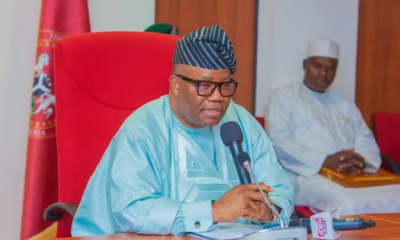
 Featured5 days ago
Featured5 days ago
 Agribusiness5 days ago
Agribusiness5 days ago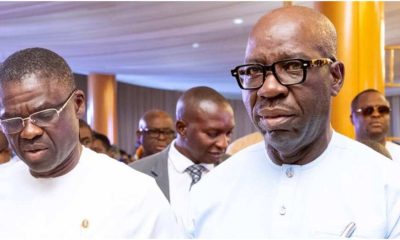
 Latest5 days ago
Latest5 days ago


